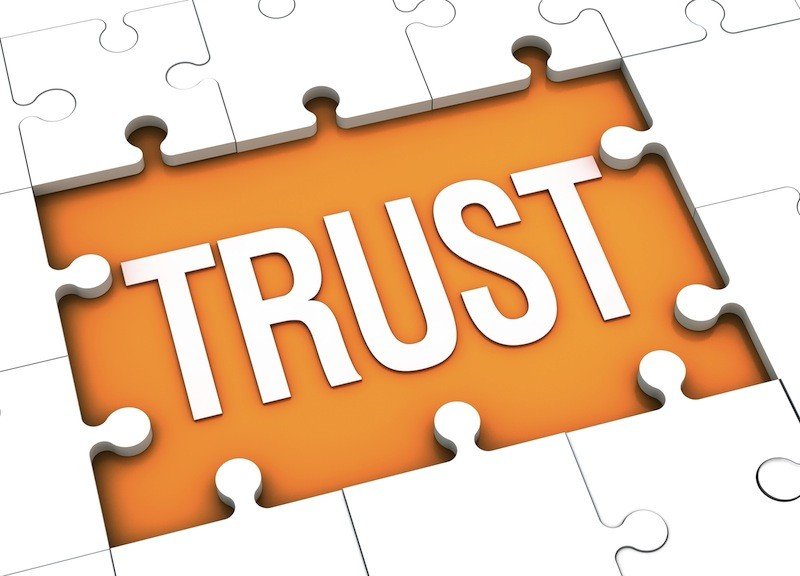
by Julia Felton | Jan 29, 2013
Unbridle Your Success and Lead Your Business
Much like my horses a business needs good leadership and yet time and time again I see business owners struggling and frustrated as their business starts leading them.
You know your business is leading you when you are feeling:
- Overwhelmed with making a decision on how or what to do to move forward
- Frustrated at how stressful your business has really become
- Reactive to the opportunities that surround you rather than pro-active
- Stuck in an income bracket that you seem unable to break through
- Believe that the next level of success is maybe just too far out of reach
- Feel unbalanced, unorganized and incapable of taking it to the next step
- And most of all, you know you are working for the worst boss ever – YOU
It’s time to Grab the Reins and take control of your business and your life and pro-actively decide what is happening.
The first step to enable you to lead your business from surviving to thriving is to get your own personal success game plan, one that aligns with your natural strengths with the universal energies and gets you playing the game you love whilst working with others that love and excel at the bits you hate.
Great leaders know that “Success is a team game” and you need to surround yourself with herd members that complement your strengths. So what game do you need to play to be successful and who do you need in your herd?
”If you are doing anything that feels like hard work, you are already doing the wrong thing”
Do you think successful people know their personal success game plan…? You bet they do!
I am committed to helping more people. like you, discover their personal success game plan that resonates with your natural strengths and leadership style. So for a limited time – until the 8th February, you can get your personal success game for just £97 and as an extra special bonus I will offer you a 30 mins 1:1 personal consultation to get you started.
That’s a massive 50% discount on the normal price. You can learn more here.
You will receive your 16 page personal success report that details your personal success game plan based on your natural gifts and talents. And during our 30 min consultation we will look at the strategies and activities that will most naturally and easily help you stay in flow so that you can achieve more success in 2013.
So don’t delay click the button below and complete the online success questionnaire and your personalised success game plan will be immediately emailed to you. Then once you have read the report email me and we will schedule in your personal 1:1 success consultation.
Don’t delay, this could be the best decision you ever make to help you discover your personal success game plan for 2013.
I look forward to working with you to make 2013 your best year ever.

by Julia Felton | Jan 4, 2013
In the same way that trust has five aspects, flow also has five aspects. While we may trust a team member to be great at analysing the details, we may still feel their contribution will slow down the process and so we will avoid getting them involved.
Our talent grows when we deliver more value in the area we are most trusted, and we accelerate flow by mastering our ability to leverage that value.
In Talent Dynamics, there are five aspects of flow and each of them comes more naturally to each of the five frequencies. Here are the five aspects of flow:
Initiative
This is the degree to which your team experience that you consistently contribute your ideas and plans for improvement effectively such that they add to the success of the company. Dynamo frequency profiles naturally contribute the greatest flow in this area.
Respect
This is the degree to which your team experience that you consistently collect and share suggestions and feedback from customers and partners with the team for effective action, resolution and improvement. Blaze frequency profiles naturally contribute the greatest flow in this area.
Presence
This is the degree to which your team experience that you consistently invest the time to be present for the team, and to be proactive in seeking and finding solutions to improve the well being and harmony of the team. Tempo frequency profiles naturally contribute the greatest flow in this area.
Discipline
This is the degree to which your team experience that you consistently maintain a high level of caring and sharing in how you manage time, performance, measures and financial responsibility. Steel frequency profiles naturally contribute the greatest flow in this area.
Perseverance
This is the degree to which your team experience that you consistently work with the end in mind and find paths to success for the team and company without giving up. As each profile builds their awareness and mastery of their spirit frequency, they will contribute at increasingly higher levels in this area. This keeps the team in flow through every
season and the transitions between them.
The Talent Dynamics Barometer is a 360 degree review in which each team member receives feedback in each of these five factors of both trust and flow. From this, they gain visibility of the areas in which they can most rapidly grow sustainable value for the benefit of the team. The team as a whole also sees where they have the biggest gaps in trust and this will often inform them on the additions they need to make in the team to enable everyone to perform at a higher level.

by Julia Felton | Dec 20, 2012
When we hear a team member say of another team in the company “We can’t trust them with that” or a manager say to a team member “I don’t trust you with this task” we are hearing the word ‘trust’ used in a very explicit way. Yet trust (and distrust) shows up more often in invisible ways:
- A team member is given extra responsibility.
- A reorganisation moves some teams into more critical positions.
- Customers stop buying a particular product…
When we have a suspicion that trust has fallen, we may open up some conversations or make some enquiries but the dynamics of trust remain grey and cloudy. Within Talent Dynamics, the invisible becomes visible by recognising trust as having five distinct aspects. These aspects are all measurable and allow us to see where any individual, team and company are most trusted and least trusted. When we know this within a team, we can transform results rapidly by aligning activities to those we trust most in them and build the team to support each member where trust is lowest.
Here are the five aspects of trust:
Innovation
This is the degree to which your team trusts that you can be consistently relied on to come up with creative solutions and plans. Dynamo frequency profiles naturally create the most trust in this area.
Communication
This is the degree to which your team trusts that you can be consistently relied on to share information and listen effectively. Blaze
frequency profiles naturally create the most trust in this area.
Service
This is the degree to which your team trusts that you can be consistently relied on to look after customers and team members.
Tempo frequency profiles naturally create the most trust in this area.
Measurement
This is the degree to which your team trusts that you can be consistently relied on to measure and refine your own performance.
Steel frequency profiles naturally create the most trust in this area.
Spirit
This is the degree to which your team trusts that you can be consistently relied on to remain resilient and positive. Those who build
this on their path through their leadership naturally create the most trust in this area.
When we stop trusting a team member or an entire team to deliver in a particular area, we often let the factor in which we are not trusting them to overshadow any areas in which we do trust them and so throw out their strength with their weakness.
By assessing all five areas, we can quickly become aware of where we have hidden, unutilized talent just waiting to be unlocked.
We are excited that Stephen R. Covey will be the keynote speaker at the Talent Dynamics Trust Conference next year.
Want to discover your frequency. Take the Talent Dynamics Test here.

by Julia Felton | Dec 12, 2012
Team dynamics is one of the overlooked parts of a business. Yet it affects so much of a how a business operates, from the individual in the team to the company as a collection of teams to the entire market place.
If a team is out of sync or out of flow, things happen slowly or at worst not at all, accuracy levels decrease, absence increases, motivation is lacking and an unhealthy degree of competitiveness enters the workplace. The team members fail to trust one another. The team fails to work effectively. The business suffers. Does this problem sound familiar?
When looking at a business you need to identify areas where value and trust is lacking and how team work is being blocked. Imagine a team that worked well together, could anticipate each other and could back each other up. A team fully ‘in flow’. What economic impact would that have on your business or organisation?
Every person has something of value they bring to the team, a strength or a talent. This needs to be harnessed and encouraged to bring value to the team and increase the level of trust.
Julia Felton is an accredited Talent Dynamics Consultant and can help you improve and manage performance in your enterprise.

by Julia Felton | Dec 5, 2012
“Intention is comprised of our passion or desire to manifest. Intention has energy, it has life.”
– Ariana Strozzi, Horse Sense for the Leader Within
When the seemingly relentless demands at work and burdens of a busy life take their toll on work performance, we tend to think that managing our time better will improve the situation. If we can just work faster, multi-task more efficiently, things will be better, we think, as we buy the latest time management gadget or software.
However, as Jim Loehr and Tony Schwartz, authors of The Power of Full Engagement, explain, it is the skillful management of energy, not time, that most significantly affects high performance. Too often, we squander this valuable resource through energy-taxing habits—physical, emotional, mental and spiritual habits. Take this Self-Quiz to see how well you are managing your energy.
1. I rely on sugary or carbohydrate-rich snacks for bursts of energy when I need an energetic pick-me-up.
2. Life is an endless marathon to be endured; you just have to keep on running.
3. I tend to do what feels immediately pressing and easier to accomplish rather than make intentional choices about how I spend my time and what matters most.
4. I hate routines; they’re too much like being stuck in a rut. I prefer to be loose and spontaneous.
5. I’m so busy I rarely have time to reflect on what I value most deeply.
6. I seem to be stuck in overdrive; I feel like I’ve lost the ability to shift to any other gear.
7. I work out (cardiovascular and weight training) irregularly, if at all.
8. I regularly get less than six hours of sleep.
9. I rarely take breaks; that way, I can get more done.
10. When I take the time to notice, my breathing seems shallow; I seem to go a long time without taking a deep breath.
11. Anxiety, frustration and overwhelm seem ever-present for me.
12. When I’m under pressure, I easily become harsh or defensive with others.
13. Personal relationships are not something I devote a lot of energy to. If they don’t work, I move on.
14. I smoke and/or drink; to be honest, doing so really helps lower my anxiety level.
15. It’s been a long time since I’ve done something purely because it was enjoyable or felt good.
16. Downtime is wasted time.
If you answered “true” to more than just a few of these statements, you’re probably not performing—or feeling—as well as you could be. If you would like to explore how to live in a way that enhances your energy, not depletes it, then you need to be in flow. Please don’t hesitate to contact me so that I can help you discover your own secret recipe for putting energy and flow into your life.

by Julia Felton | Nov 28, 2012
A number of my clients always ask me what it feels like to be in flow and in this Ted video Mihaly Csikszentmihalyi explains that flow is the secret to happiness.
In summary when we are in flow the following occurs:
- Completely involved in what we are doing – focused and concentrating
- A sense of ecstasy – a sense of being outside everyday reality
- Greater inner clarity – knowing what needs to be done, and knowing how well we are doing
- Knowing that the activity is doable – that are skills are adequate to the task
- A sense of serenity – no worries about oneself, and a feeling of growing beyond the boundaries of the ego
- Timelessness – thoroughly focused on the present, hours seem to pass by in minutes
- Intrinsic motivation – whatever produces flow becomes it’s own reward
You can access the TED video here at:
http://www.ted.com/talks/mihaly_csikszentmihalyi_on_flow.html
So do you know when you are in flow and what your path to success looks like?. Imagine how easy success is when you are in flow. In you would like to discover your flow profile take the test here.

by Julia Felton | Nov 21, 2012
“The greatest source of unhappiness comes from inside.” —Jim Rohn
If you want to be a leader who attracts quality people, the key is to become a person of quality yourself. Leadership is the ability to attract someone to the gifts, skills, and opportunities you offer as an owner, as a manager, as a parent. I call leadership the great challenge of life.
What’s important in leadership is refining your skills. All great leaders keep working on themselves until they become effective. Here are some specifics:
Learn to be strong but not rude. It is an extra step you must take to become a powerful, capable leader with a wide range of reach. Some people mistake rudeness for strength. It’s not even a good substitute.
Learn to be kind but not weak. We must not mistake kindness for weakness. Kindness isn’t weak. Kindness is a certain type of strength. We must be kind enough to tell somebody the truth. We must be kind enough and considerate enough to lay it on the line. We must be kind enough to tell it like it is and not deal in delusion.
Learn to be bold but not a bully. It takes boldness to win the day. To build your influence, you’ve got to walk in front of your group. You’ve got to be willing to take the first arrow, tackle the first problem, discover the first sign of trouble.
You’ve got to learn to be humble, but not timid. You can’t get to the high life by being timid. Some people mistake timidity for humility. Humility is almost a God-like word. A sense of awe. A sense of wonder. An awareness of the human soul and spirit. An understanding that there is something unique about the human drama versus the rest of life. Humility is a grasp of the distance between us and the stars, yet having the feeling that we’re part of the stars. So humility is a virtue; but timidity is a disease. Timidity is an affliction. It can be cured, but it is a problem.
Be proud but not arrogant. It takes pride to win the day. It takes pride to build your ambition. It takes pride in community. It takes pride in cause, in accomplishment. But the key to becoming a good leader is being proud without being arrogant. In fact I believe the worst kind of arrogance is arrogance from ignorance. It’s when you don’t know that you don’t know. Now that kind of arrogance is intolerable. If someone is smart and arrogant, we can tolerate that. But if someone is ignorant and arrogant, that’s just too much to take.
Develop humor without folly. That’s important for a leader. In leadership, we learn that it’s okay to be witty, but not silly. It’s okay to be fun, but not foolish.
Lastly, deal in realities. Deal in truth. Save yourself the agony. Just accept life like it is. Life is unique. Some people call it tragic, but I’d like to think it’s unique. The whole drama of life is unique. It’s fascinating. And I’ve found that the skills that work well for one leader may not work at all for another. But the fundamental skills of leadership can be adapted to work well for just about everyone: at work, in the community, and at home.
Article by Jim Rohn

by Julia Felton | Nov 14, 2012
I came across this 1928 article (anonymous) called ‘10 Ways to Kill a Team’. I smiled as a I read it and thought you’d enjoy:
- Don’t go to team meetings. Complain about the inconvenience of scheduling – place – time.
- If you do go, go late and offer a creative excuse. Do create distractions when arriving.
- If the weather doesn’t suit you, don’t even think of going. It’s not convenient anyway.
- If you attend, find subtle fault with the work of the team leader and team members.
- Never accept leadership as it is easier to criticise than to do things and take the heat.
- Get sore if you are not appointed to special teams, but if you are, don’t participate.
- If asked by the team leader for your opinion, don’t give it – complain after the meeting.
- Do the minimum, when others jump in to help, complain that a clique runs the team.
- Don’t pay your dues or coffee / birthday / anniversary fund collections, or pay very late.
- Don’t recruit new members, “Let George do it”. Complain about quality and production.
Do you know anyone who does these things?!
If any of these resonate then I would strongly urge you to look at your team and how to engage them in your business. One great way to do this is to get your team members to take a Talent Dynamics profile test. You can take the test here.

by Julia Felton | Nov 13, 2012
One in 20 bosses. That’s only 5%.According to this research cited in Management Today, for every company that has 20 bosses (your average 200-300 employee firm), only one of them is likely to be a good boss. For a public sector body with say 5000 employees, it may have 25 good bosses. Puts things into perspective wouldn’t you say?
How on earth does this happen in today’s world when it would be easy to think that businesses understand the value of developing their people? It’s not like there aren’t any books on the subject or even free information out there on the good ol’ web…
I’ve pulled together these critical danger points for you to look at for yourself and/or to work through with the leaders and managers in your organisation. They come from my personal experience and learning so I’m not saying this is all there is to it, please add your own insights too in the comments:
Critical Danger Points
Not understanding that different people need different approaches so they treat all people the same.
This can come from a genuine wish to do well by others, so many of us learned “Do unto others as you would have them do unto you”. Treating people with kindness and compassion makes you a good person. Giving all your direct reports public praise and recognition may not make you a good manager though – some will love it and others may be mortified. The same applies to how much time you spend handholding and ‘helping’ your team. Some may really appreciate help, others will just feel micro-managed and that you don’t trust them.
Not ensuring people work to their strengths and talents.
The evidence is overwhelming on this point. When managers and their teams really get how to leverage their talents across the team (and between them and other teams in the organisation) not only does productivity and effectiveness go up, motivation and engagement usually increases too.
Underestimating the importance of good people management the higher up the ladder they go.
I’ve heard several HR people talk as though senior leaders don’t need to focus so much on their people management skills because their direct reports are also more senior and should know what they’re doing. Maybe so, however, there are some other factors to consider. Their direct reports are people too and they have the same emotional needs as any person does. Remember “All the world’s a stage” and people are watching how senior managers manage to get clues about what is really valued by the big bosses, no matter what leaders say. So maybe it’s more important the higher up they go as they get to influence a greater sphere of people. After all, people do as you do, not as you say..
They lack self-awareness
As cited in the Management Today article self-awareness is very important. Imagine a leader talking at a staff conference about people coming forward with ideas and interacting when they had shouted at people only a few minutes earlier? Leaders and mangers may believe that their past successes were all down to them and discount the contribution of others. Nothing rankles so much with people as when blame and credit are unfairly attributed. There may be times when us development and HR peeps have to bite the bullet and help leaders to understand the impact of their behaviour – get your CV ready and tread carefully though, not all leaders will want to hear it because…
They simply don’t care and purposely choose a domineering or bullying stance
because they believe that’s what gets results. It will definitely get results; the ones where people do a lot of politicking to stay on their right side. The kind of results where people won’t pass on valuable data for decision-making because it conflicts with what they know or think the leader wants to hear. This not caring often results in the best people leaving the business at the first opportunity because they’re not allowed to do their best work. The research cited in the article found that 47% of respondents felt threatened at work, instead of praised… The end result of all this is usually a downward spiral for the organisation.
They don’t manage change very well.
Any research on change will indicate that participation and communication are the two most important elements of successful change. Yet time and time again bosses don’t do either very well. All too often in my experience decisions are made without genuine interaction with others in the organisation. Often those making the decisions on changes don’t know what really goes on in the level of detail that team members do. Give people a chance to input BEFORE decisions are made. Not all change will be good for each individual in the business but for those that it is make sure to communicate that as well as why the change is so vital in the first place. Then communicate that again and again and again and again until people complain that they’ve heard this message several times now!
The business hasn’t got the right leader in the right place at the right time.
In the way that team members will get to perform at their best when they get to work to their strengths, the same applies to leaders and managers too. Yet more than this, each leader will have a time and place in the organisation that is most suited to their talents. When a leader is great at innovating and problem solving, don’t put them in charge of customer service because they are likely to innovate their way out of service issues. This is especially true when the business (or product) is at the point where it is building a solid customer base. In the same way, a leader who is great at managing risk is not going to excel if the organisation really needs to boost the performance of its staff. In addition, the economy goes through cycles (or seasons) too and this also influences who is best to lead at a particular point in time. You don’t want the person who was so good at tightening your belts to restrict growth when the economy turns from Winter to Spring.

by Julia Felton | Nov 8, 2012
According to research cited in Management Today, only one in every 20 bosses (5%) is a good leader. So for every company that has 20 bosses (your average 200-300 employee firm), only one of them is likely to be a good boss. For a public sector body with say 5,000 employees, it may have 25 good bosses. Puts things into perspective wouldn’t you say?
How on earth does this happen in today’s world?. In John Maxwell’s experience most people stop growing when they reach their 20’s. Rarely do you find a person committed to a personal growth plan into their 30’s, 40’s or beyond. I know that when I worked in the corporate world bosses were so busy working that they rarely had time to develop themselves. And yet the irony is that great leaders never get to the point where their influence has maxed out. They always have unreached potential waiting to be fulfilled. In leadership, how far you go depends on how much you grow. Your growth as a leader is within your control; you can do something about it. You’ll grow the most when you know the most about how the process of personal development happens.
There are three basic laws of personal growth:
1) The Law of Intentionality: Growth Doesn’t Just Happen
Seldom do we lack access to information that can help us grow, but rarely do we apply the resources at our disposal. Put simply, knowing isn’t the same as growing. Whilst old age may happen automatically, growth doesn’t necessarily come with experience. This reminds me of the adage:
To Know and Not To Do is Not Yet To Know
In order to grow to our potential, we have to discard the mistaken beliefs that prevent us from moving forward. Two such beliefs are:
- that failure is fatal
- that we don’t have time right now to pursue a growth plan.
For starters, failing doesn’t mean that someone is a failure. Mistakes are an inescapable part of life, and failures often teach us lessons that we could never learn otherwise. Indeed, failures are steppingstones to success. With respect to time, the longer we intend to do something without taking action, the greater the odds that we will never do it. Time is the one resource we cannot recapture once it’s lost; there’s no way to make up for months and years of neglecting personal development.
2) The Law of Awareness: You Must Know Yourself to Grow Yourself
Personal growth isn’t a one-size-fits-all strategy for self-improvement. For personal growth to be beneficial, and not a waste of energy, it must be suited to your unique strengths and particular temperament. Not everyone shares the same learning style: what works for one person may be completely inappropriate for another. In addition, personal growth requires you to identify your purpose in life. Unless you’re clear where you’re headed, you won’t know which ways to grow. On the other hand, once you have a definite vision in mind, you can begin to develop the specific set of skills needed to accomplish it. Knowing your Talent Dynamic profile provides great insight into the best way for you to grow, a way that matches your learning style and uses your gifts to their best ability.
3) The Law of Consistency: Motivation Gets You Going, Discipline Keeps You Growing
Anyone who has successfully lost weight through regular exercise can tell you that there were days when they didn’t feel like going to the gym. All of the excitement about getting in shape dissipates at 5:00 am when the alarm clock rudely reminds you to get out of bed for a morning workout. To develop the discipline to keep growing, we must constantly remind ourselves why personal development means so much to us. As Simon Sinek reminds us – we must have a great reason why because unless we have clarity on Why we are doing something we will never maintain the motivation and discipline to continue when times get tough (and they inevitably will).
To get where you want to go in life, personal growth cannot be overlooked, postponed, or taken for granted. Your development requires intentionality, focus and accountability. It also requires a plan. If you would like help developing your plan sign up for one of my complimentary Grab The Reins – Lead Your Life Discovery Sessions where we will uncover what is holding you back from reaching your full potential.













